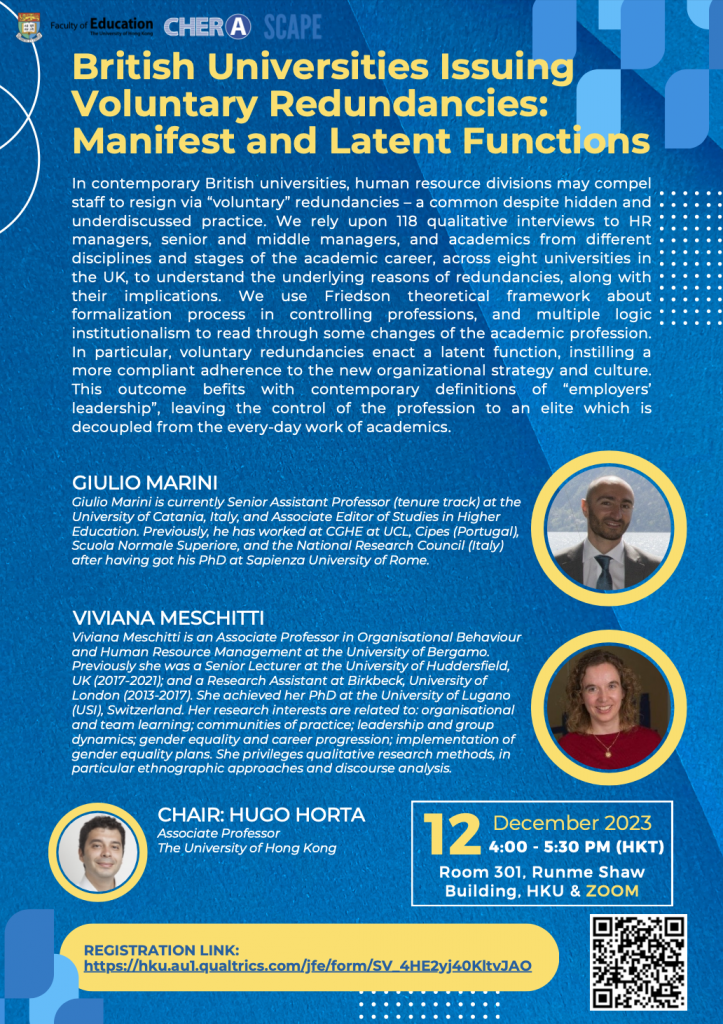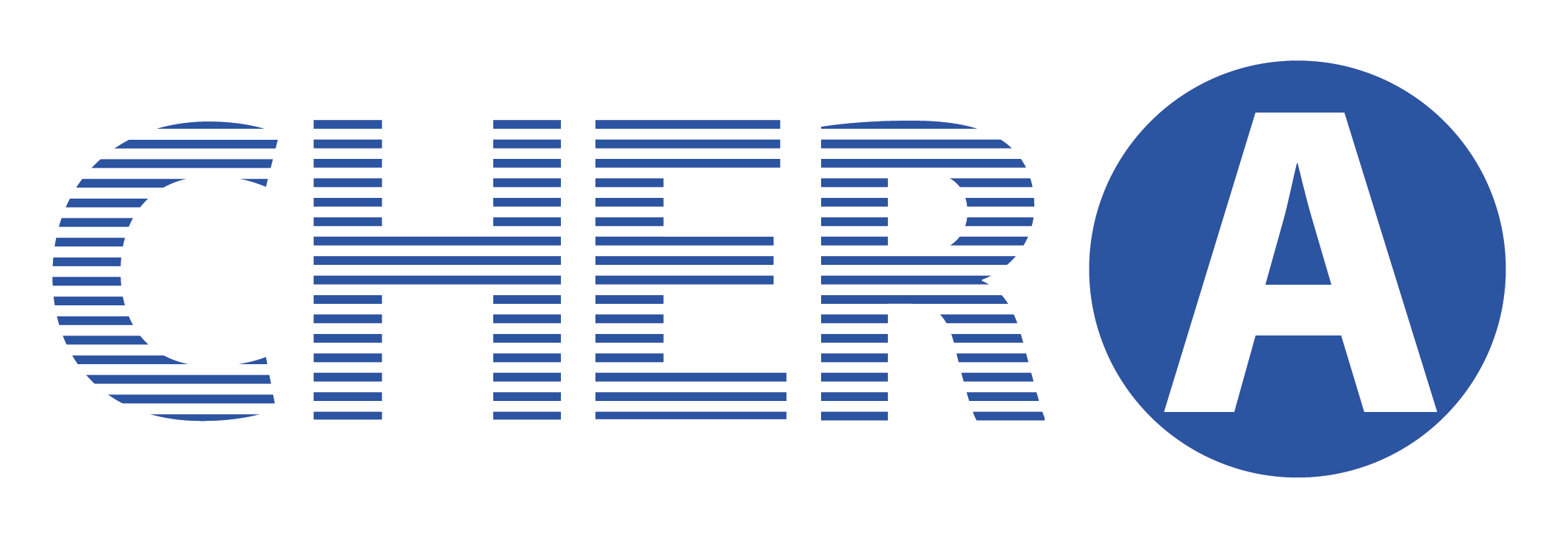
Time: 16:00-17:30, (HKT)
Date: 12 Dec, 2023
Venue: HKU, RM301 (Runme Shaw Building)
Mode: hybrid (HKU/by Zoom)
Speaker: Dr. Giulio Marini (University of Catania); Dr. Viviana Meschitti (University of Bergamo)
Chair: Dr. Hugo Horta (HKU)
Video Recording Link: https://www.youtube.com/watch?v=ulP-Nh97TYo
Abstract: In contemporary British universities, human resource divisions may compel staff to resign via “voluntary” redundancies – a common despite hidden and underdiscussed practice. We rely upon 118 qualitative interviews to HR managers, senior and middle managers, and academics from different disciplines and stages of the academic career, across eight universities in the UK, to understand the underlying reasons of redundancies, along with their implications. We use Friedson theoretical framework about formalization process in controlling professions, and multiple logic institutionalism to read through some changes of the academic profession. In particular, voluntary redundancies enact a latent function, instilling a more compliant adherence to new organizational strategy and culture. This outcome befits with contemporary definitions of “employers’ leadership”, leaving the control of the profession to an elite which is decoupled from the every-day work of academics.
Dr. Giulio Marini is currently Senior Assistant Professor (tenure track) at the University of Catania, Italy, and Associate Editor of Studies in Higher Education. Previously, he has worked at CGHE at UCL, Cipes (Portugal), Scuola Normale Superiore, and the National Research Council (Italy) after having got his PhD at Sapienza University of Rome.
Dr. Viviana Meschitti is an Associate Professor in Organisational Behaviour and Human Resource Management at the University of Bergamo. Previously she was a Senior Lecturer at the University of Huddersfield, UK (2017-2021); and a Research Assistant at Birkbeck, University of London (2013-2017). She achieved her PhD at the University of Lugano (USI), Switzerland.
Her research interests are related to: organisational and team learning; communities of practice; leadership and group dynamics; gender equality and career progression; implementation of gender equality plans. She privileges qualitative research methods, in particular ethnographic approaches and discourse analysis.
